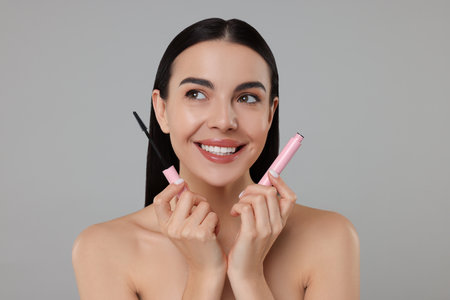1. Hyperpigmentation Only Affects People with Dark Skin
Many believe that hyperpigmentation is a concern only for people with darker skin tones, but it can occur in all skin types and colors. While its true that individuals with more melanin may be more prone to certain types of dark spots or discoloration, this skin condition does not discriminate—anyone can experience it. Understanding this myth is key to better skincare for everyone.
Hyperpigmentation happens when your skin produces too much melanin in certain areas, leading to patches or spots that are darker than the rest of your complexion. This can be triggered by various factors like sun exposure, acne scars, hormonal changes, or even certain medications—and these triggers don’t just affect one group of people.
How Hyperpigmentation Can Show Up in Different Skin Tones
| Skin Tone | Common Triggers | Typical Appearance |
|---|---|---|
| Fair to Light | Sun damage, inflammation, acne scars | Pinkish to red-brown spots |
| Medium to Olive | Hormonal changes, post-acne marks | Brown or tan patches |
| Darker Skin Tones | Irritation from products, acne, injury | Darker brown to grayish-black areas |
The Bottom Line
No matter your skin color, its important to protect your skin from UV rays, treat inflammation quickly, and choose gentle skincare products. Everyone deserves clear and healthy-looking skin—and understanding the truth about hyperpigmentation is the first step.
2. Sun Exposure Doesn’t Make It Worse
One of the most harmful myths about hyperpigmentation is the belief that sun exposure doesn’t really affect it. In reality, UV rays are one of the biggest culprits when it comes to making dark spots darker and more stubborn.
Even if your skin doesn’t burn easily, that doesn’t mean it’s safe from damage. Ultraviolet (UV) radiation stimulates melanin production—the pigment responsible for dark spots—and this can cause existing hyperpigmentation to deepen over time. Whether you’re dealing with post-acne marks, melasma, or sunspots, skipping sunscreen will only make matters worse.
Why Sunscreen Is Non-Negotiable
Using a broad-spectrum sunscreen every single day (yes, even on cloudy days and during winter) is crucial in keeping hyperpigmentation under control. Broad-spectrum means it protects against both UVA (aging rays) and UVB (burning rays), both of which can trigger increased melanin production.
Common Misconceptions vs. Facts
| Myth | Reality |
|---|---|
| You don’t need sunscreen on cloudy days. | Up to 80% of UV rays still reach your skin through clouds. |
| Darker skin tones don’t need sunscreen. | All skin tones can experience hyperpigmentation and should use SPF daily. |
| Sunscreen is only for summer. | UV rays are present year-round, even during cold weather. |
Pro Tip:
Choose a sunscreen with at least SPF 30 and reapply every two hours if youre spending time outdoors. Mineral sunscreens with ingredients like zinc oxide or titanium dioxide are great options for sensitive or acne-prone skin.
Daily sun protection isn’t just a skincare step—it’s a must-have defense against worsening pigmentation issues. Don’t let the myths fool you; your future skin will thank you!
![]()
3. Natural Remedies Work Just as Well as Clinical Treatments
Its easy to fall for the idea that natural remedies are just as effective as clinical treatments when it comes to hyperpigmentation. After all, who doesn’t love the idea of fixing skin issues with ingredients from your kitchen or a clean beauty aisle? While natural products can support overall skin health, they often dont deliver the consistent and powerful results needed to fade dark spots effectively.
Let’s break down the differences:
| Natural Remedies | Clinical Treatments |
|---|---|
| Examples: aloe vera, turmeric, lemon juice | Examples: retinoids, hydroquinone, chemical peels |
| Mild and soothing on skin | Targeted action on pigmentation at a cellular level |
| Inconsistent results; may take months or longer | Backed by research; visible improvement within weeks |
| Lower risk of irritation (but not always safe—e.g., lemon juice can be harsh) | May cause side effects if not used correctly (why dermatologist guidance matters) |
The truth is, natural ingredients like aloe vera or green tea can be great for calming the skin and reducing inflammation. But when it comes to actively breaking down excess melanin—the pigment responsible for dark spots—they usually don’t pack enough punch. That’s where dermatologist-recommended treatments come in.
Ingredients like retinoids help increase cell turnover, while hydroquinone directly targets melanin production. These ingredients are clinically proven to reduce hyperpigmentation more effectively than DIY masks or oils.
If youre serious about fading dark spots, its best to combine a healthy skincare routine with science-backed ingredients. And remember—always wear sunscreen daily! Even the best treatments won’t work if your skin is still exposed to UV damage.
4. Hyperpigmentation Will Go Away On Its Own
It’s a common belief that dark spots or discoloration will simply fade with time, but unfortunately, that’s not always the case. Although some spots may lighten gradually, most types of hyperpigmentation need more than just patience to improve. Without targeted skincare or professional help, you might find yourself waiting months—or even years—without seeing much change.
Why Hyperpigmentation Doesnt Just Disappear
Hyperpigmentation can be caused by a variety of factors like sun damage, acne scars, hormonal changes, and inflammation. Depending on the root cause, your skin may not have the ability to repair itself completely without some kind of intervention. That’s why it’s important to understand what youre dealing with and how to treat it effectively.
Common Causes vs. Treatment Needs
| Cause of Hyperpigmentation | Will It Fade on Its Own? | Recommended Treatment |
|---|---|---|
| Sun exposure | Rarely | Sunscreen + Vitamin C serum |
| Post-acne marks | Sometimes, but slowly | AHA/BHA exfoliants, niacinamide |
| Melasma (hormonal) | No | Prescription creams, chemical peels, laser treatments |
| Inflammation-related (e.g., eczema) | Sometimes | Anti-inflammatory care + brightening agents |
The Risk of Waiting Too Long
If youre hoping your dark spots will vanish on their own, you could end up feeling disappointed and frustrated. In many cases, untreated hyperpigmentation can become more stubborn over time—especially if youre still being exposed to sun or environmental stressors without protection. The longer you wait, the harder it might be to treat later on.
What You Can Do Now
The good news? There are plenty of effective options available today—from over-the-counter products with ingredients like retinol, vitamin C, licorice extract, and niacinamide, to professional treatments such as chemical peels or laser therapy. Working with a dermatologist or esthetician can help you figure out the best plan for your unique skin type and concerns.
5. You Should Exfoliate More to Get Rid of Dark Spots
It’s a common belief that scrubbing away at your skin will help fade dark spots faster. But here’s the truth: over-exfoliating can actually make hyperpigmentation worse, not better. When you exfoliate too often or use harsh scrubs, you can irritate your skin, leading to more inflammation—and guess what? Inflammation can trigger even more pigmentation.
Why Over-Exfoliation Is a Problem
Your skin has a natural barrier that protects it from damage. When you exfoliate too aggressively or too frequently, you strip away this protective layer. This doesn’t just cause redness and sensitivity; it can also send your skin into panic mode, increasing melanin production and making those dark spots darker.
Gentle Exfoliation Is Key
That doesn’t mean exfoliation is bad—it just needs to be done right. Gentle exfoliants like alpha hydroxy acids (AHAs) or beta hydroxy acids (BHAs) can help remove dead skin cells and promote cell turnover without causing damage. The trick is to use them in moderation and pair them with soothing ingredients.
Quick Guide: Exfoliating Do’s and Don’ts for Hyperpigmentation
| Do’s | Don’ts |
|---|---|
| Use chemical exfoliants like glycolic acid 1–2 times a week | Avoid daily scrubbing with physical exfoliants |
| Look for products with soothing ingredients like niacinamide or aloe vera | Don’t combine multiple strong actives at once (like AHA + retinol) |
| Follow up with SPF every morning | Don’t exfoliate if your skin feels irritated or raw |
The Bottom Line on Exfoliating for Dark Spots
If youre dealing with hyperpigmentation, less is often more when it comes to exfoliation. Be gentle, stay consistent, and give your skin time to heal and renew naturally. Harsh scrubbing won’t speed up results—it may just set you back.


